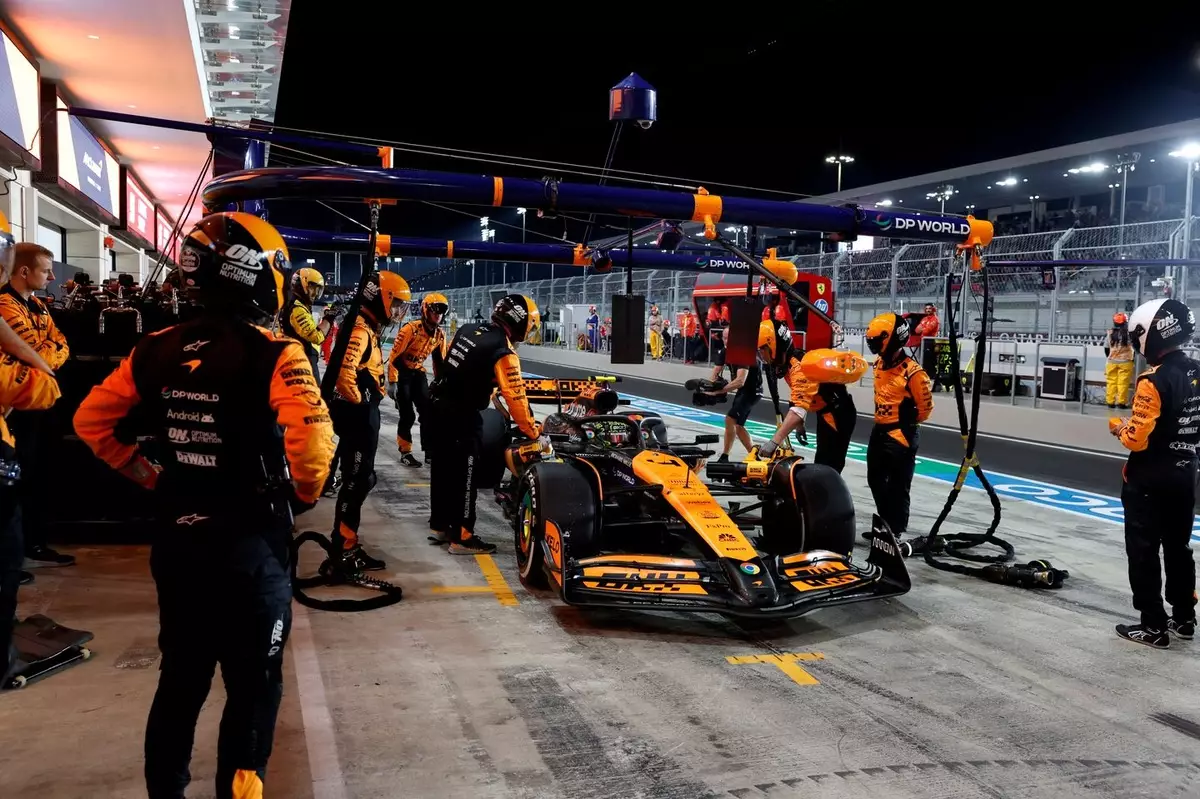In the high-stakes arena of Formula 1 racing, where split-second decisions can determine championship outcomes, the integrity of the penalty system is paramount. Recently, this issue came to a head during the Qatar Grand Prix when Lando Norris of McLaren received a controversial 10-second stop-go penalty for not slowing down under double yellow flags. This incident has prompted not only a strong reaction from McLaren but also broader concerns about the consistency and fairness in how penalties are enforced within the sport.
While McLaren’s acknowledgment of Norris’s failure to heed the double yellow flags is crucial, the team’s principal, Andrea Stella, categorized the penalty as excessively severe relative to the offense. The underlying principle here hinges on the idea that penalties should not only serve as a deterrent but also reflect a fair assessment of the infraction’s gravity. When the punishment for an infringement appears to be disconnected from the act itself, it sparks debates about the integrity of the sport. Stella’s comment about a „lack of specificity and proportion“ highlights a systemic issue in the way penalties are administered, raising the question: how do we arrive at a fair balance in reprimanding drivers?
Herein lies the challenge—the potential consequences of today’s decisions may shape the landscape of future races. A series of penalties applied inconsistently can tarnish the credibility of the championship and alienate teams who invest considerable resources and energy into competing at the highest level.
When penalties appear heavy-handed, they risk having ramifications that extend beyond a single race. The notion that Norris’s sanction could significantly influence the championship speaks volumes about the stakes involved in Formula 1. Each team operates under immense pressure, with drivers‘ futures and reputations often hinging on a few critical moments in each Grand Prix. By issuing what some consider draconian measures, the FIA risks alienating teams, fans, and drivers alike, which may lead to dissent both on and off the track.
For instance, the incident with Lewis Hamilton—who succumbed to a drive-through penalty for speeding in the pit lane—was another case echoed in criticism. Mercedes boss Toto Wolff echoed sentiments of unfairness when he remarked on the abrupt and intense nature of this round of penalties, expressing concern for both teams involved and the overall integrity of the championship. The gravity of these decisions must prompt a recalibration of how penalties are evaluated, ensuring they are not just punitive, but educational and corrective.
Stella’s insistence on a thorough review of how penalties are applied suggests a pressing need for a comprehensive overhaul of existing protocols. By identifying the areas where penalties can be refined, the FIA has an opportunity to enhance the fairness of competition. Importantly, this reevaluation should focus on developing coherent guidelines that cater to the complexities of racing dynamics, thereby ensuring that teams and drivers have a clearer understanding of the consequences of their actions.
Additionally, it’s crucial for the FIA to engage with teams proactively. Open lines of communication could foster a collaborative atmosphere, where rules evolve based on mutual insights and empirical evidence gathered from the races. A transparent explanation of why penalties are deemed necessary would alleviate some of the anxieties currently permeating the paddock.
Ultimately, the Formula 1 landscape thrives on competition, excitement, and strategy. Ensuring that penalties are fairly administered is vital to maintaining the sport’s integrity and the respect of its many stakeholders. As the stakes rise, so too does the necessity for a principled and balanced approach to decision-making by the FIA. With each race presenting unique challenges and circumstances, a flexible yet coherent penalty framework must evolve to meet both regulatory standards and the expectations of teams and fans alike.
As Formula 1 enters a new era with heightened scrutiny and expectations, the FIA’s capability to adapt its penalty protocols will undoubtedly influence not just the current championship, but the future credibility and appeal of the sport itself. The task at hand is clear: to embrace a culture of fairness and consistency that uplifts rather than diminishes the spirit of competition in Formula 1.


Napsat komentář